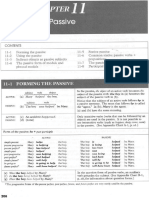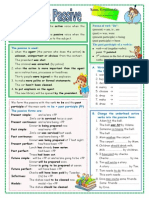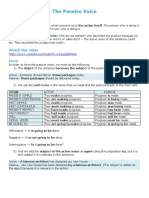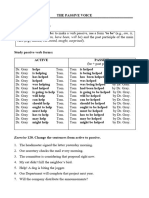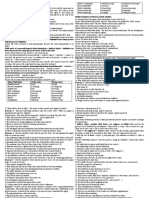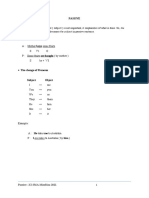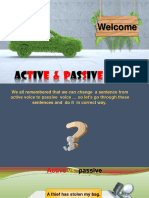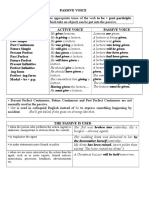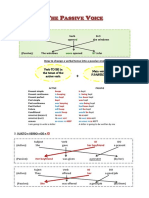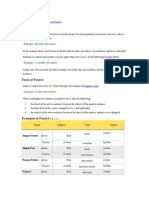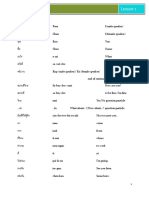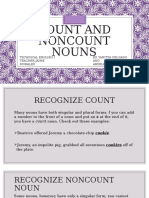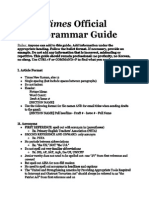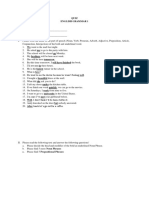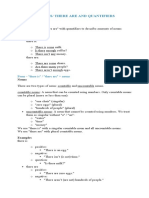0% found this document useful (0 votes)
26 views9 pagesLecture 21
This document is a lecture on passive voice in grammar, detailing how to convert active sentences into passive form. It includes exercises for practice, explanations of when to use passive voice, and common mistakes to avoid. The document also covers the passive forms of modals and phrasal modals.
Uploaded by
babaiamarichkitCopyright
© © All Rights Reserved
We take content rights seriously. If you suspect this is your content, claim it here.
Available Formats
Download as PDF, TXT or read online on Scribd
0% found this document useful (0 votes)
26 views9 pagesLecture 21
This document is a lecture on passive voice in grammar, detailing how to convert active sentences into passive form. It includes exercises for practice, explanations of when to use passive voice, and common mistakes to avoid. The document also covers the passive forms of modals and phrasal modals.
Uploaded by
babaiamarichkitCopyright
© © All Rights Reserved
We take content rights seriously. If you suspect this is your content, claim it here.
Available Formats
Download as PDF, TXT or read online on Scribd
/ 9












